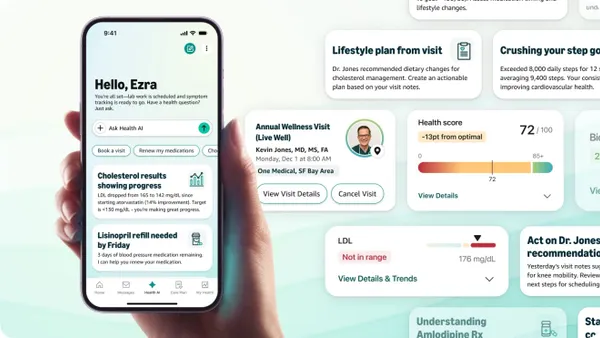Dive Brief:
- The Scripps Research Translational Institute and NVIDIA are partnering to leverage artificial intelligence in genomic and health sensor data.
- The collaboration, announced Tuesday, aims to prevent diseases by applying deep learning to data derived from whole genome sequencing and digital sensors, and expedite biomedical studies.
- The partnership will initially focus on developing deep learning tools to predict atrial fibrillation, as well as analytics of whole genome sequences, the companies said. From there the Scripps-NVIDIA team will expand to other diseases and datasets.
Dive Insight:
The industry is still figuring out how best to apply AI and big data to healthcare, but companies are jumping in and investing in the concept, not wanting to risk being left behind on the next big wave of biomedical innovations.
The new FDA-cleared Apple Watch ECG could also be spurring some folks to action. The electrocardiogram app is available without a prescription for people age 22 and older. Apple snagged a second FDA clearance for an app that identifies irregular heart rhythms that may indicate atrial fibrillation.
The Scripps-NVIDIA deal includes plans for a center of excellence in genomics and digital health sensors that will develop best practices, tools and the infrastructure to advance AI in the biomedical research community.
With machine learning, data builds up in layers, forming neural networks that add onto the previous ones.
"AI is already transforming healthcare by using electronic health records and medical imaging to better diagnose and treat disease," Kimberly Powell, vice president of healthcare at NVIDIA, said in a statement. "Our collaboration with Scripps expands these opportunities by tapping into the rapid accessibility of genomic and digital wearable data, and furthers the quest to better predict and prevent disease."
NVIDIA previously teamed up with IBM to advance a deep learning software tool kit intended to speed up machine learning and increase IBM Watson's AI capabilities.













